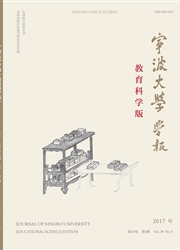

 中文摘要:
中文摘要:
在当前中国的社会发展中,因征地拆迁、经济纠纷、环境污染、非正常死亡等引起的群体性事件屡见不鲜.而网络的发展为群体性事件的信息传播提供了更为快捷、有效的方式,受众能够利用网络发表个人意见、释放个人情绪.因此,受众的某些网络言论会在短时间内形成舆论热点,制造出大量的“口水”.在负面“口水”先发制人的情况下,正面舆论往往会淹没在“口水”当中,无法引导舆论.在分析网络“口水效应”传播表征和负效应的基础上,将“口水效应”置于群体性事件的语境下审视,探求其化解路径.
 英文摘要:
英文摘要:
In the current society, it is common to find group events caused by the land acquisition and demolition, economic disputes,environment pollution, and abnormal death. Meanwhile, the development of the network offers a faster and more effective way for the information dissemination in group events, in which the audience feels free to make comments and release emotions. As a result, some online speech of the audience would become hot spot within a short time,which in turn attracts a lot of "saliva". The preemptive strike of negative opinions would drown out those positive ones, making the latter unable to guide public opinion. This paper reviews "saliva effect" in the context of the group events, and explores its solution by analyzing the characteristics of its spread and negative effects.
 同期刊论文项目
同期刊论文项目
 同项目期刊论文
同项目期刊论文
 期刊信息
期刊信息
